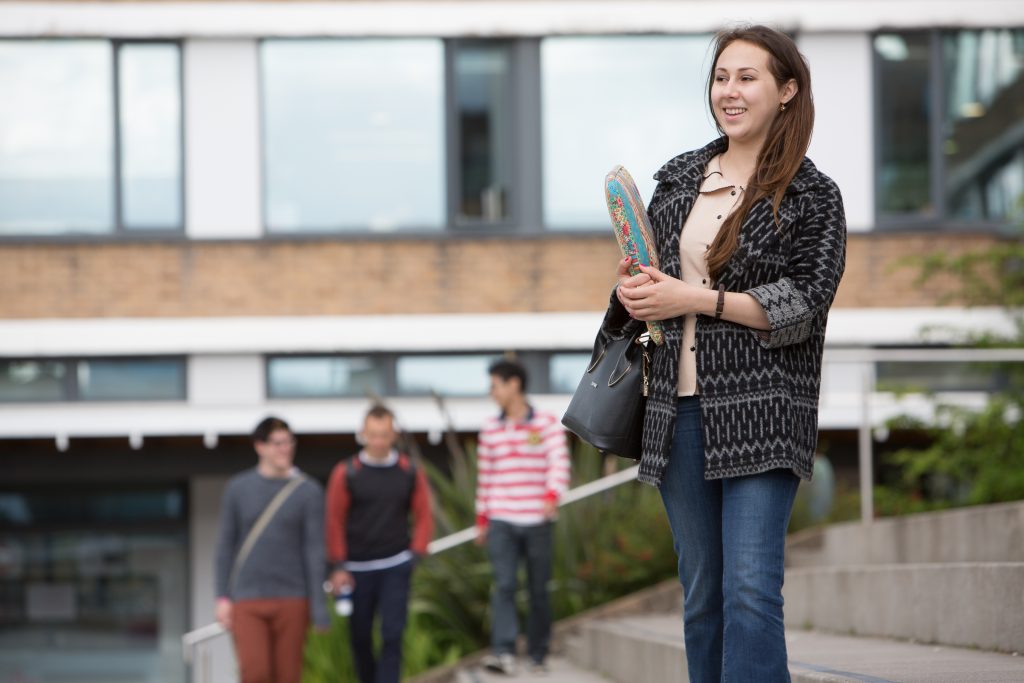 by Catherine (Student Blogger: BSc Computer Science)
by Catherine (Student Blogger: BSc Computer Science)
The adjustment to university life can be testing. You may think you get enough lectures at home, but at university you will have several lectures a week. It is important to aim for full attendance. That being said, if you miss the odd one, whether you’re ill or don’t remember any of last night after receiving an iconic Sugarhouse stamp, you won’t spontaneously combust. Just don’t let it become a regular occurrence. You will want to be able to enjoy your free time rather than spending it catching up and struggling to resurface from a sea of lecture notes.
Sometimes lectures can feel fast-paced and you’ll want to rush to write everything down. Don’t. Your hand won’t thank you for it and when it comes to revision for exams most people can’t revise from hundreds of pages of scrawled notes. It may take some practice, but try to note down any key points or formulas as well as anything you find interesting and would like to study further outside of the lecture.
Make a study schedule and stick to it. This may not sound very appealing as you’d much rather spend your free time on your hobbies or hanging out with friends. The extra time spent going over work will make you understand lecture content more clearly and make your future work easier, thus you will find your course material more enjoyable. You will also feel more confident in your abilities and will be saved from cramming in too much work in the weeks leading to exams.
If your course has some coursework elements, work these into your study schedule and try to start as soon as the task is set. Before you begin you can’t be sure of what issues you may encounter or if something in your personal life might set you back a day or two. Starting work the night before its due leaves you with a very short timescale to correct any errors, meaning your grades won’t be as high as they could have been had you started earlier.
You may feel well-prepared for the term with your colour-coordinated folders and more pens than students in the Gregg’s queue at lunch time, but don’t forget to consider your mental preparation. You will be more engaged in your lectures if you had a refreshing night’s sleep and feel confident for the day ahead; if you have any issues with your mental well-being contact your college’s welfare team.
At the beginning of your first year you will be appointed an academic advisor, who you should meet regularly to discuss your academic progress and any issues you are facing. Get to know your lecturers also. While it is difficult for them to remember everyone by name, if you make an impression they will know who you are. Engage in their lectures by answering questions and if you’re struggling, ask some of your own; feel confident in yourself to do so. If you get an answer wrong you may feel embarrassed, but you have no reason to be; chances are some of your fellow students would have answered the same, and so long as you didn’t accidentally call your lecturer ‘mum’ no-one will take much notice.
University is more mature and fast-paced than previous education; finding a good balance between study and leisure and having confidence in yourself are the keys to success.

Very good article. I think most people underestimate how much time they waste at the beginning of a semester before they actually getting productive. Finding the right balance between study and leisure is they key for a successful student life!
Thank you. In my first year I went to the extreme of all study and no leisure, spending almost all of my spare time on coursework and studying lecture material. In the end I think I would have actually done better if I’d spent more time enjoying the year and engaging in hobbies as I would have felt more motivated